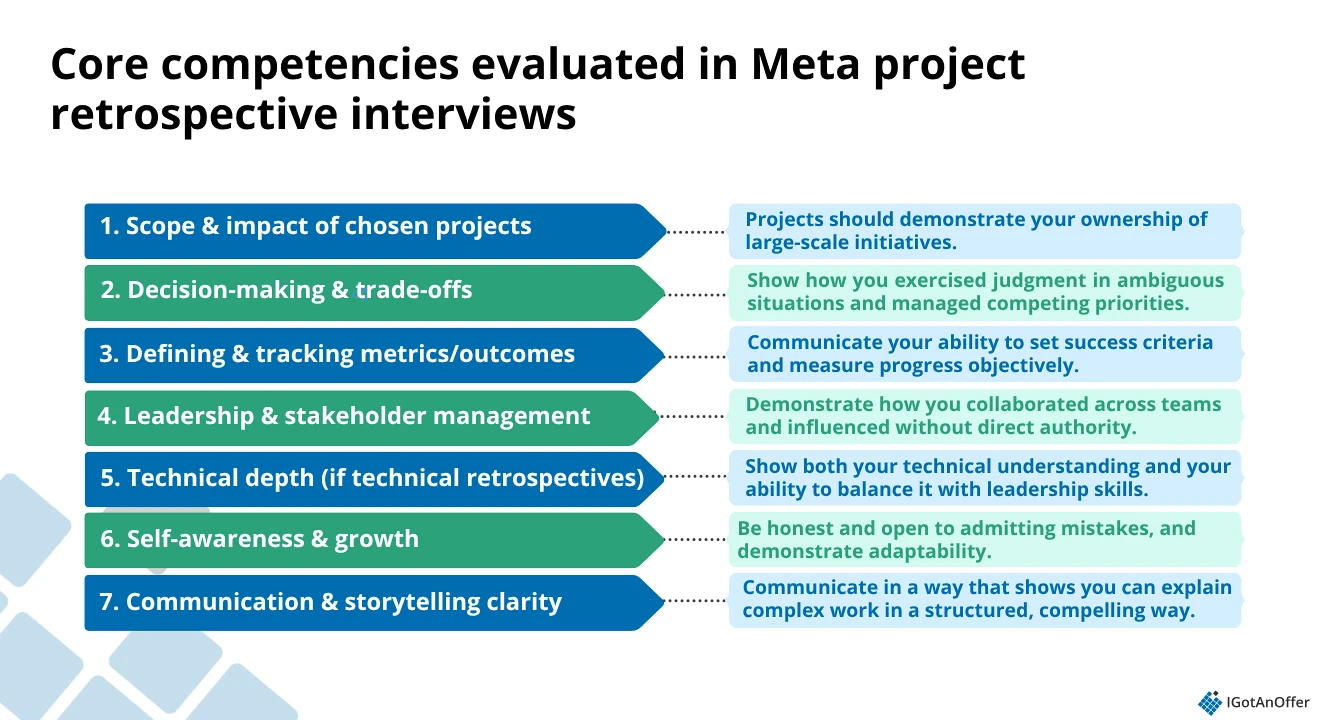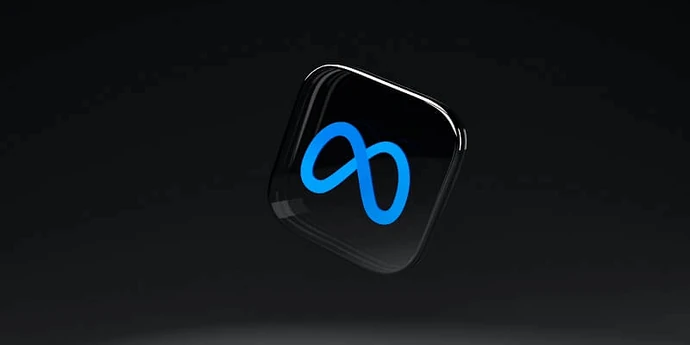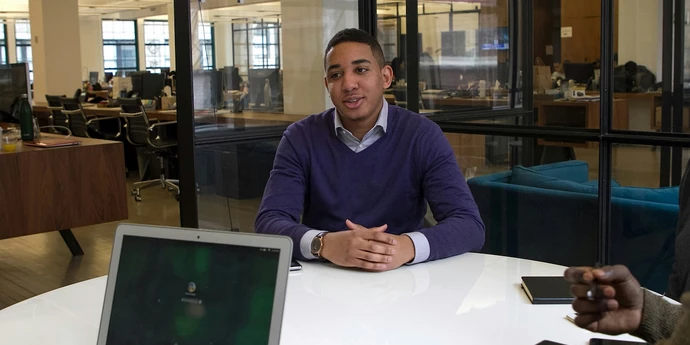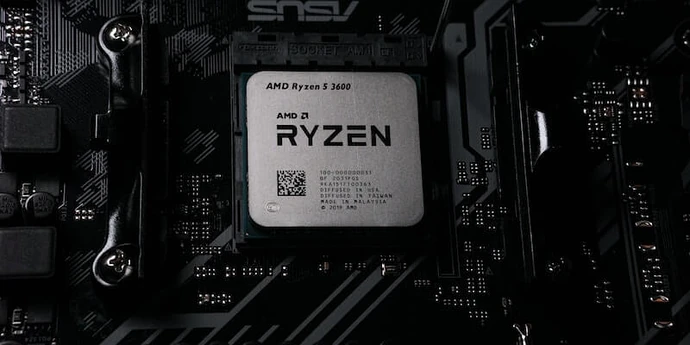The interview process at Meta is challenging, especially for senior roles, where the bar is set high. If you’re going for a leadership position like engineering manager or product manager, you’ll need to get familiar with the Meta project retrospective interview, as it’s a crucial part of your full loop interviews.
Retrospective interviews are typically conducted for leadership roles. Their purpose is to deep-dive into a project you’ve led in the past and assess your relevant skills within a real-world context.
With the right preparation, you can communicate a compelling story that will land you a senior position at Meta.
To help you get there, we’ve put together a guide that covers the basics of preparing for your Meta project retrospective. Discover where retrospectives fit in the Meta interview process, the two types of project retrospectives, example interview questions, and practical tips from our experienced ex-Meta coaches.
Here’s an overview of everything we cover:
- What is the Meta project retrospective interview?
- Two types of Meta project retrospective interviews
- What does Meta evaluate in project retrospective interviews?
- Example prompts and questions from Meta project retrospective interviews
- Interviewing tips for Meta project retrospective interviews
- Preparation plan
Click here to book mock interviews with experienced Meta interviewers.
1. What is the Meta project retrospective interview?↑
A Meta project retrospective interview is a deep dive into a project you’ve managed in a previous role. Instead of testing pure technical knowledge or coding ability, it focuses on how you planned, executed, and reflected on a real-world initiative.
Project retrospectives are a formal interview round in the Meta interview process, typically lasting 45 minutes. You’ll walk the interviewer through one or more projects you owned, covering the scope, decisions, outcomes, challenges, and lessons learned.
Retrospectives are evidence-based. Instead of probing you on hypothetical situations, Meta interviewers want to know how you actually operated in practice: handling trade-offs, aligning with stakeholders, measuring success metrics, and adapting when your project wasn’t going as planned.
Meta project retrospectives show up for most leadership roles. The focus of the interview depends on the position you’re applying for.
Here are some senior roles at Meta that require a project retrospective interview round:
- Engineering manager. Undergoes both a technical and non-technical project retrospective.
- Technical Program Managers (TPMs). Often called program execution interviews, and focus on your team communication and project delivery, rather than technical architecture depth.
- Product Managers (PMs). Framed as execution or leadership interviews, and focus on your decision-making and learnings from launches or failed initiatives.
- Senior and Staff-level Software Engineers (E6 and above). Focus on technical leadership, system design trade-offs, and scaling decisions, especially if the engineer has managed or driven large projects.
- Engineering Directors. Retrospectives are even more critical at this level. They focus on your organizational impact, multi-team management, and long-term technical strategy.
1.1 How does the project retrospective interview fit into Meta’s interview loop?
Retrospectives are part of the full loop stage of the Meta interview process. For engineering managers (EMs), it comes alongside coding, system design, and leadership interviews. You can read more about it in section 2.1.4 here.
Take note that Meta project retrospective interviews are separate from coding, system design, and behavioral interviews.
The retrospective may inquire into skills that Meta tests in other interviews, but they are always discussed in the context of a real project that you’ve led in the past. Retrospectives emphasize storytelling, reflection, and judgment in the context of your past learnings.
Most candidates will face one retrospective, and in some cases two: a technical and a non-technical.
2. Two types of Meta project retrospective interviews↑
Meta runs two kinds of project retrospective interviews: non-technical project retrospectives and technical retrospectives.
In both types, Meta looks for structured storytelling and an ability to reflect on what worked, what didn’t, and how you learned from it.
2.1 Non-technical project retrospectives
For the non-technical retrospective, Meta will be interested in learning about your soft skills, like people and project management, and business sense.
For Meta EMs, be ready to talk clearly and specifically about:
- Program/project requirements, planning, and execution
- Negotiating and collaborating with stakeholders and peers
- Setting impact metrics
- Considering trade-offs and timelines
- Scaling systems and business processes
- General business understanding
The interviewer will want to see how you navigate cross-functional alignment, manage ambiguity, and measure impact. Focus your storytelling on those aspects and don’t get too stuck on technical details here.
2.2 Technical project retrospectives
The technical retrospective will be conducted by a senior engineer, in the case of an engineering manager.
According to this blog post by ex-Meta engineer Tony Wu, the project discussed here should be the type of project that more junior engineers can’t handle, so you can showcase your technical prowess.
Wu suggests that when choosing a technical project to discuss, make sure it’s complex across multiple competencies. For EMs, you should cover topics like:
- Scalability challenges. The project had to handle significant growth in data, users, or traffic, requiring advanced techniques like sharding, replication, or partitioning.
- High availability/reliability. You dealt with non-trivial reliability demands, ensuring uptime and resilience in complex environments.
- Performance under load. The work required solving hard problems around latency or throughput, such as optimizing response times or supporting large-scale concurrency.
- Complex stakeholder or business requirements. The project involved demanding customer expectations or business constraints that made execution more difficult.
- Security and privacy considerations. You had to meet strict compliance, data protection, or privacy requirements that introduced added complexity.
- Integration across diverse systems. The initiative spanned multiple domains (e.g., infrastructure, mobile, and machine learning) and required orchestration across different technologies.
Start off by explaining the project at a high level and then go into further detail.
Again, it's a discussion and not a presentation, so you won’t need to come with a slide show.
3. What do Meta interviewers evaluate in project retrospective interviews?↑
Interviewers at Meta use project retrospectives to measure key competencies of a senior role:
- Scope and impact of chosen projects. Projects should demonstrate your ownership of large-scale initiatives.
- Decision-making and trade-offs. Show how you exercised judgment in ambiguous situations and managed competing priorities.
- Defining and tracking metrics/outcomes. Communicate your ability to set success criteria and measure progress objectively.
- Leadership and stakeholder management. Demonstrate how you collaborated across teams and influenced without direct authority.
- Technical depth (for technical retrospectives). Show both your technical understanding and your ability to balance it with leadership skills.
- Self-awareness and growth. Be honest and open to admitting mistakes, and demonstrate adaptability.
- Communication and storytelling clarity. Communicate in a way that shows you can explain complex work in a structured, compelling way.

4. Example questions from Meta project retrospective interviews↑
To help you prepare for your Meta project retrospective interviews, we rounded up some sample interview questions from Glassdoor.com, specifically for the engineering manager role.
You can use these questions as a starting point to practice your answers and storytelling strategy.
Example project retrospective questions in engineering manager interviews at Meta
Non-technical
- Tell me about a project you led end-to-end. How did you scope it, and what was the outcome?
- Describe a technically complex project you managed. What made it complex, and how did you handle it?
- Give me an example of a cross-team collaboration challenge. How did you resolve it?
- Think of a project that didn’t go as planned. What did you learn, and what would you do differently?
- What metrics defined success for that project, and how did you track them?
Technical
- Describe a software development project you led and your approach.
- Describe the most technically complex project that you have worked on and why it was complex.
- Talk through a project, product, or system you worked on: the design, technical problems you faced, how you solved them, trade-offs, etc.
5. Interview tips for Meta project retrospectives↑
You might be a fantastic candidate, but unfortunately, that won’t necessarily be enough to ace your interviews at Meta. Interviewing is a skill in itself that you can learn and hone.
Let’s look at some key tips to make sure you approach your retrospective interviews correctly.
5.1 Select the right project to talk about
You will likely be asked to choose the past project you’d like to discuss. Otherwise, your interviewer may choose to zoom in on a project listed in your resume, so make sure to check what projects you included in your application.
Choose initiatives with enough scope, complexity, and impact to showcase your skills. Remember, this is your time to bring attention to how you act and bring impact in a leadership position.
5.2 Learn a technique for answering questions
When answering your interview questions, you should focus on your most relevant achievements and experiences and communicate them in a clear way. An easy way to achieve this is to use a step-by-step method to tell your stories.
The STAR method (Situation, Task, Action, Result) is a popular approach for answering behavioral questions because it’s easy to remember. You may have already heard of it.
However, we’ve found that candidates often find it difficult to distinguish the difference between steps two and three, or task and action. Some also forget to include lessons learned in the results step, which is especially crucial when discussing past failures.
So, we’ve developed the IGotAnOffer method to correct some of the pitfalls we’ve observed when using the STAR method.
The IGotAnOffer SPSIL Method (Situation-Problem-Solution-Impact-Lessons)
- Situation: Start by giving the necessary context of the situation you were in. Describe your role, the team, the organization, the market, etc. You should only give the minimum context needed to understand the problem and the solution in your story. Nothing more.
- Problem: Outline the problem you and your team were facing.
- Solution: Explain the solution you came up with to solve the problem. Step through how you went about implementing your solution, and focus on your contribution over what the team / larger organization did.
- Impact: Summarize the positive results you achieved for your team, department, and organization. As much as possible, quantify the impact.
- Lessons: Conclude with any lessons you might have learned in the process.
5.3 Get used to setting up the situation in 30 seconds or less
Whether you’re using the SPSIL or STAR method to answer behavioral questions, use a timer while you practice to ensure you provide only the necessary information. Spending too much time on setting up the situation is one of the most common mistakes candidates make.
5.4 Stay focused on essential details
Match your storytelling to the type of retrospective you’re doing, whether it’s a non-technical or technical retrospective. If you go into unnecessary details, you are likely to lose your interviewer’s attention.
For the non-technical retrospective, focus on your soft skills, leadership abilities, and quantitative outcomes of the given project. If you’re doing a technical retrospective, focus on the project’s technical depth and quantify your impact with numbers.
5.5 Be proud and talk about yourself
Not talking about yourself enough is a common mistake we see with a lot of candidates. This is not the time to be shy about your accomplishments. Concentrate on your impact, not on your team as a whole.
5.6 Adapt to follow-up questions
Don’t be alarmed if your interviewer asks follow-up questions; this is perfectly normal. Listen carefully to the way your interviewer is asking these questions, as there will often be a subtle clue about the specific skills they’re looking to assess from the next part of your answer.
5.7 Be honest and authentic
Be genuine in your responses. Meta interviewers appreciate authenticity and honesty. If you faced challenges or setbacks, discuss how you improved and learned from them. When talking about failure, don’t try to hide your mistakes or frame a weakness as a strength. Instead, show what you learned and how the failure helped you grow.
5.8 Demonstrate reflection and learning.
The point of a retrospective interview is to examine your past behavior, performance, and learnings. Show self-awareness and how you applied the lessons you learned to future projects and in your role.
5.9 Get comfortable visualizing your system design process
During your technical retrospectives, your interviewers may want you to visualize your answer. Practice describing a past project that’s relevant to Meta by organizing it with block diagrams on a virtual whiteboard. What your interviewers will be looking for is how you approach a problem in a way that’s both structured and creative.
5.10 Center on Meta’s values
Familiarize yourself with Meta’s culture and core values and align some of your storytelling with them. Meta values certain attributes like passion for technology, collaboration, and focus on the user.
5.11 Practice mock project retrospectives
Finally, practice for your interview with mock retrospective interviews. This can be done with a peer or, ideally, an expert who has worked at Meta and has experience giving or passing Meta retrospective interviews.
Mock interviews with a good coach can help you better prepare for real-time interview conditions. An expert can ask you relevant follow-up questions, offer informed insight on what Meta looks for, and give you feedback that will help you identify gaps in your stories or answers.
5.12 Avoid the most common pitfalls
Even strong candidates stumble on retrospectives if they make these certain errors. Here are some you’ll want to avoid for the best chance at nailing your Meta project retrospective interviews.
1. Choosing projects that are too narrow or lack complexity
Meta looks for candidates who demonstrate ownership of large, ambiguous projects with cross-team dependencies. Picking a project that’s too tactical or limited in scope won’t give you enough material to show your leadership, technical judgment, and strategic thinking.
2. Not tailoring your story to the type of retrospective being assessed
A common pitfall is preparing a “one-size-fits-all” story. But Meta differentiates between technical and non-technical retrospectives, and interviewers will be testing for different competencies in each.
3. Focusing on the wrong details
In non-technical retrospectives, going too deep into architecture or coding choices can miss the mark. While in technical retrospectives, being overly high-level can make you seem out of touch with technical realities. Tailor your depth to the type of interview and your audience.
4. Using vague success metrics
Saying a project was “successful” without quantifying how (e.g., latency reduced by X%, revenue increased by Y, user engagement grew by Z) weakens your story. Meta values measurable impact, so prepare clear metrics that tie back to business or user outcomes.
5. Avoiding discussion of failures or lessons learned
Some candidates only emphasize the positives, but Meta interviewers want to see humility, reflection, and a learning mindset. Admitting what went wrong and what you’d do differently shows maturity and adaptability.
6. Delivering unstructured stories that confuse the interviewer
Jumping around or skipping context makes it hard for interviewers to follow your reasoning. Using a structured framework like STAR (Situation, Task, Action, Result), SPSIL, or similar helps ensure your story is clear, compelling, and easy to track.
7. Underplaying your leadership
Many candidates overemphasize their own contributions while downplaying how they influenced, aligned, or empowered others. Meta engineering managers, for example, are evaluated heavily on people leadership and stakeholder alignment, so these aspects should be front and center.
6. Preparation plan↑
Now that you know what questions to expect, let's focus on how to prepare.
It's no secret that the performance bar at Meta is high. Some people even go as far as quitting their jobs to prepare for interviews full-time. This is obviously extreme and not what we recommend doing, but it shows how much effort some candidates are ready to put in.
We've coached more than 20,000 people for interviews since 2018. Below is our four-step prep plan for Meta.
6.1 Learn about Meta’s culture
Most candidates fail to do this. But before investing tens of hours preparing for an interview at Meta, you should take some time to make sure it's actually the right company for you.
Meta is prestigious, and it's therefore tempting to ignore that step completely. But in our experience, the prestige in itself won't make you happy day-to-day. It's the type of work and the people you work with that will.
If you know engineers who work at Meta or used to work there, it's a good idea to talk to them to understand what the culture is like. In addition, we would recommend reading the following:
- Meta's 6 core values
- Facebook’s hacker culture (by Mark Zuckerberg, via Wired)
- Meta annual reports and strategy presentations (by Meta)
- Meta's approach to tech trends (by CB Insights)
- Meta org culture analysis (by Panmore Institute)
- Meta interview fact sheets (by IGotAnoffer)
6.2 Practice by yourself
As we've outlined above, you'll have to prepare for several different categories of questions ahead of your Meta project retrospective interviews.
But the good news is that there is a lot of overlap between the project retrospective interviews and other category-specific interviews.
In this article, we've recommended various deep-dive articles that will help you prepare for each question category. Here's the complete list, plus a couple of extra resources that might help you:
- Official Meta guides: Meta software engineering leadership: initial interview and Meta software engineering leadership: onsite interview
- Leadership questions
- People management: People management questions in tech interviews
- Collaboration and Partnerships: Dealing with conflict, dealing with stakeholders
- General: Grokking the engineering management leadership interview, Meta behavioral interview questions
- Technical design & architecture: System design fundamentals
- Career conversation & motivation: "Why Meta?" interview question, Common behavioral questions in engineering interviews
- Retrospectives: Guide to technical retrospectives by Tony Wu (ex-FB)
- System design: Meta system design interview
- Product design: Meta product architecture interview
- Coding: Coding interview prep
We also have an article on what a real Meta interview experience is like, with success stories from people we've worked with. Check that out to get some best practices from successful candidates.
Once you’re in command of the subject matter, you’ll want to practice answering questions. But by yourself, you can’t simulate thinking on your feet or the pressure of performing in front of a stranger. Plus, there are no unexpected follow-up questions and no feedback.
That’s why many candidates try to practice with friends or peers.
6.3 Practice with peers
If you have friends or peers who can do mock interviews with you, that's an option worth trying. It’s free, but be warned, you may come up against the following problems:
- It’s hard to know if the feedback you get is accurate
- They’re unlikely to have insider knowledge of interviews at your target company
- On peer platforms, people often waste your time by not showing up
For those reasons, many candidates skip peer mock interviews and go straight to mock interviews with an expert.
6.4 Practice with experienced ex-Meta interviewers
Retrospective interviews are a unique differentiator in Meta’s interview process. Strong retrospectives show not only what you delivered, but how, why, and what you learned along the way.
In our experience, practicing real interviews with experts who can give you company-specific feedback makes a huge difference.
Find a Meta interview coach so you can:
- Test yourself under real interview conditions
- Get accurate feedback from a real expert
- Build your confidence
- Get company-specific insights
- Learn how to tell the right stories, better
- Save time by focusing your preparation
Landing a job at a big tech company often results in a $50,000 per year or more increase in total compensation. In our experience, three or four coaching sessions worth ~$500 will make a significant difference in your ability to land the job. That’s an ROI of 100x!
Click here to book engineer manager mock interviews with experienced Meta interviewers.















